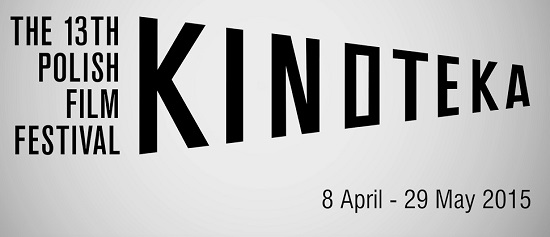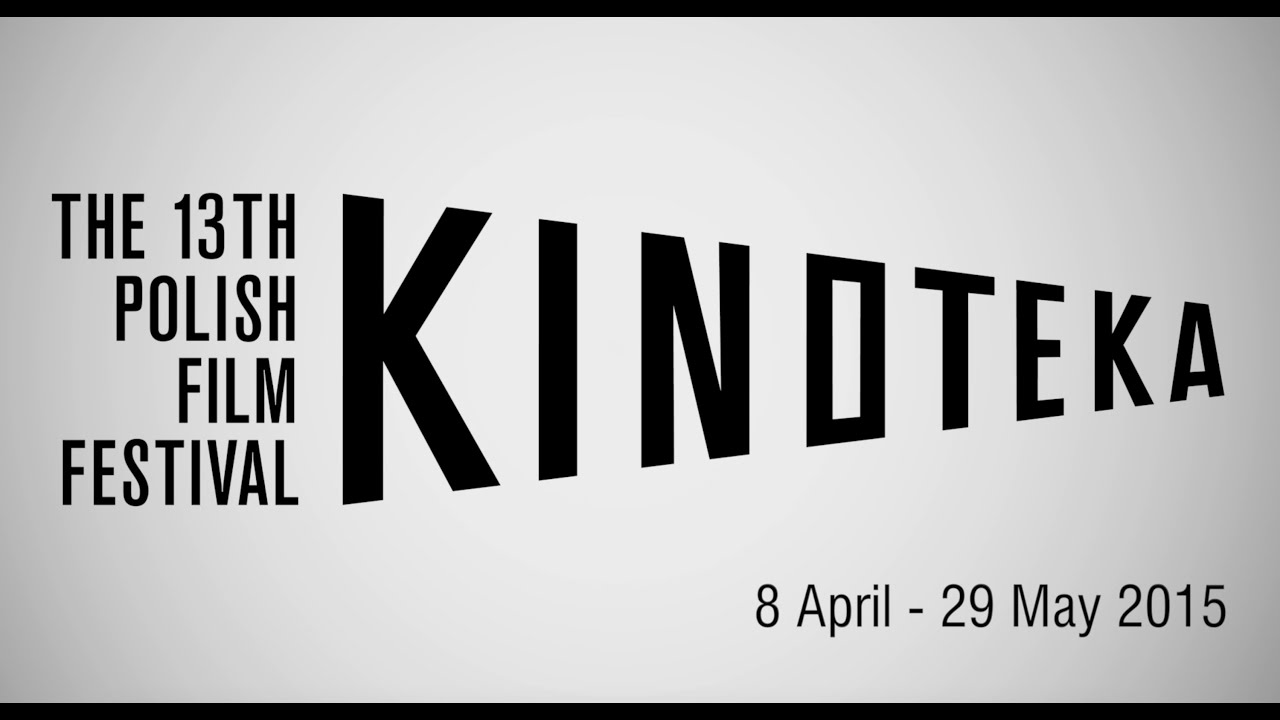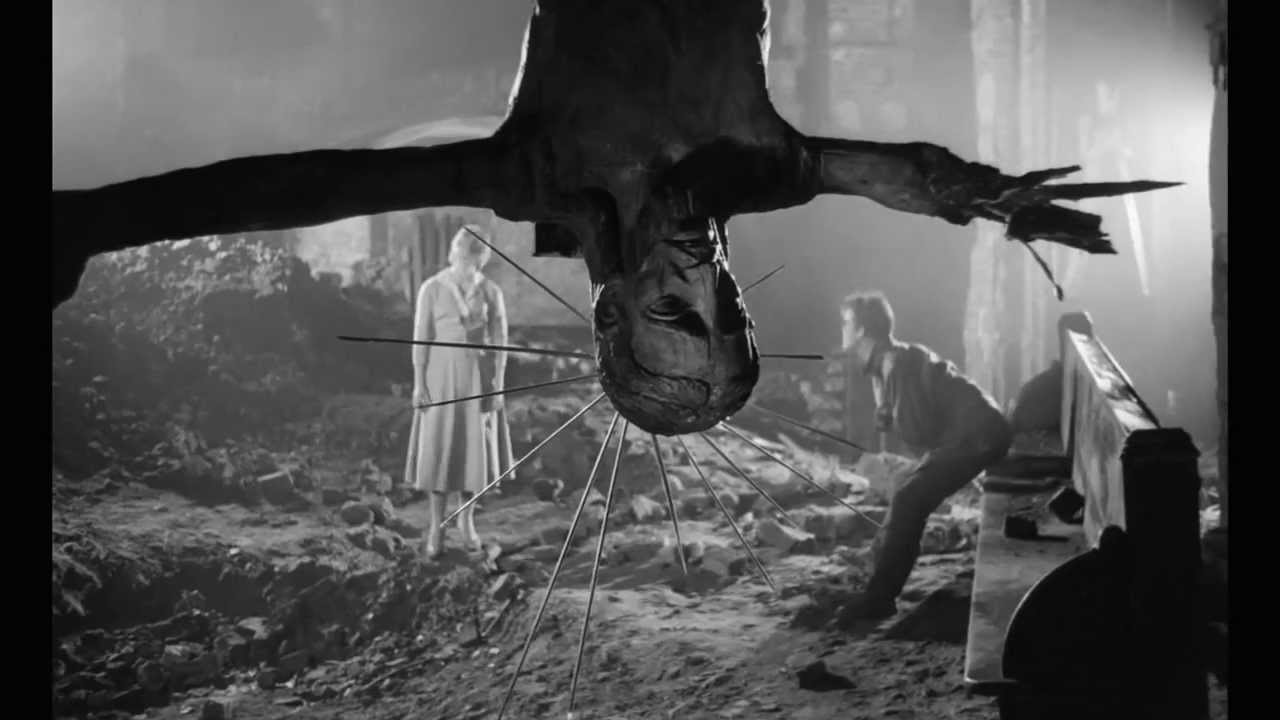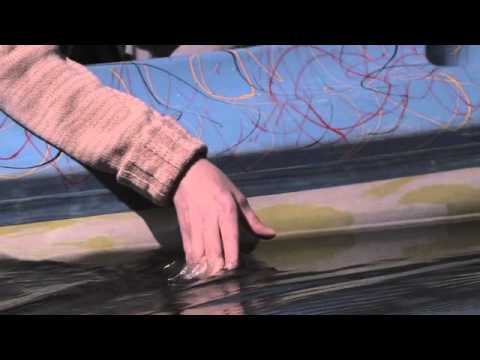The film festival is a stage on which narratives are played out, and through the programme of films that comprise the 13th Kinoteka Polish Film Festival, a history of Polish cinema is set to unfold alongside a new chapter in the festival’s story.
Marlena Lukasiak, Kinoteka Programmer and Head of Film for the Polish Cultural Institute in London reflected: “The Festival was created in 2003, and it was initially just a four day event at Riverside Studios showcasing new Polish films. As the Polish film industry became much stronger after establishing the Polish Film Institute in 2005, and as more and more films were being made in Poland, the festival started expanding its programme. It added some retrospectives, book launches and short film screenings. And of course after Poland joined the EU in 2004 the audience started growing rapidly. It consisted not only of Polish expats, but Londoners who suddenly found themselves living, working with and marrying Poles, and becoming curious about Polish culture. That motivated us to enrich the festival programme with film music events, video arts screenings and recently some workshops.”
The elusion to the EU and the benefits of a collective and unified Europe is a timely observation. This year’s festival happens to coincide with the UK General Election, and the EU issue has been a source of internal division within one half of the coalition government. But then cinema has never truly been able to escape the political sphere, and Polish cinema has frequently been infused with a subversive political ideology. As Polish critic and filmmaker Kuba Mikurda, notes: “One has to remember that Polish filmmakers working in the 1960s and the 1970s often employed visual metaphors to convey strong political messages. Polish communist censorship was mostly text-oriented and quite helpless when it came to multi-layered images. Therefore the visual poetry of Wajda or Konwicki has an important political angle."
1957 – 1987: Martin Scorsese’s 24 Masterpieces of Polish Cinema
The 13th edition has its gaze split between the past, the present and the future. Martin Scorsese’s Curated Masterpieces of Polish Cinema presents a unique opportunity to rediscover twenty-four films from across three decades. This expansive retrospective feature is a mouth-watering prospect, and offers an opportunity for rediscovery or introduction. This set of films have longed to be reacquainted with the big screen and now they are set to once again create an authentic and pure spectatorial experience.
To help in the difficult task of narrowing down the twenty-four films to a more modest and essential selection, Kuba Mikurda, who will present an introductory lecture at the BFI Southbank about Polish Cinema to launch the UK tour of the Scorsese picks, offered his thoughts: "If you appreciated the stark, black and white images of Paweł Pawlikowski’s Ida, you will love early films by Wajda, Kawalerowicz or Konwicki. Their framing, composition, camera movement are simply stunning. It’s pure visual poetry, with faces, objects and spaces perfectly sculpted with light and shadow. I strongly recommend films shot by one of the legends of Polish cinematography, Jerzy Wójcik: Ashes And Diamonds, Eroica, Mother Joan of Angels, Pharaoh. As Wójcik has put it: ‘for me light in cinema is both about contemporary physics and mysticism.’”
In addition to Mikurda’s recommendations, Roman Polanski’s feature debut Knife in the Water is emblematic of why he’s considered a master director. His black and white gem is a meticulously crafted and accomplished exercise in the escalation of suspense. Polanski offers a tale in which idyllic peace is shattered by human impulse as the narrative descends into the dark depths of the human psyche.
The Kinoteka Retrospective Documentary Programme: Wojciech Wiszniewski
“The ICA is thrilled to host this programme about one of the most remarkable documentarians who unfortunately had such a short span of time to show the world his visually striking and politically committed works.” – Nico Marzano, ICA
The Retrospective Documentary Programme which this year celebrates the career of Wojciech Wiszniewski breaks down three decades to expose a chapter within a chapter. Wiszniewski’s oeuvre is divided between his student and professional filmmaking, and comprises only a brief window of time [1967 – 1978]. Despite the brevity of the years of his output, Wiszniewski is regarded as one of Polish cinema’s leading documentary figures. Kinoteka’s retrospective celebration of one filmmaker’s impact on the documentary genre stresses the importance of the individual filmmaker in shaping a form, despite a common and shared visual language that Wiszniewski used to relay his vision.
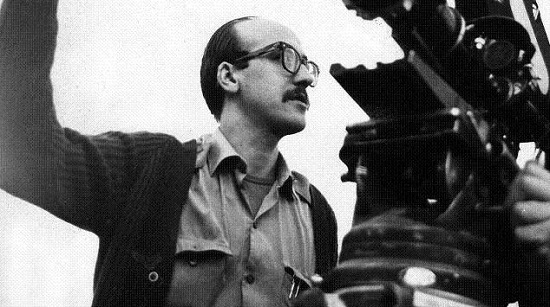
A number of Wiszniewski’s films were shelved by the socialist government, and so this strand of Kinoteka 13 allows the voice of this filmmaker to speak once again, and to deliver a message of the enduring spirit of art. This message is one that asserts that while political and totalitarian regimes are frail to the passage of time, art and creativity endures to speak beyond its age, and to reconnect with audiences outside of its present.
From the Past to the Present – Part One: Polish Fiction
Krzysztof Zanussi’s contributions to the Masterpieces Of Polish Cinema season – Camouflage, The Constant Factor, Illumination and a screening of his latest film Foreign Body – not only see Kinoteka celebrate his work, but also create a thematic journey from the past to the present. As Mikurda offers: "Krzysztof Zanussi’s films from the 1970s are examples of formally intriguing and psychologically nuanced filmmaking. In particular Illumination proves the potency of mixing avant-garde, essayistic film form with philosophical reflection and social commentary. Camouflage is also one of Zanussi’s must-sees.”
Mikurda continues: “Zanussi’s Illumination, Camouflage and Constant Factor are often presented as part of the Polish ‘Cinema Of Moral Concern’ movement of the 1970s. Interestingly, one could argue that they seem more valid and artistically convincing today than Zanussi’s more contemporary endeavors." Mikurda’s final point is a well-observed one. In trying to unsuccessfully balance a lighthearted comedy with a more complex drama – philosophical reflections mixed with social commentary – Foreign Body is a stern reminder that this balancing act is an inherently challenging process. A disjointed affair, Zanussi’s latest offering depicts a weary filmmaker whose reason for making films is the same as the reason we draw breath. Perhaps Zanussi, like so many filmmakers including Jean-Luc Godard, just reached a point where filmmaking is simply a way of life.
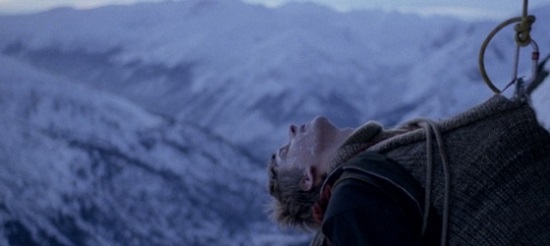
The New Polish Film strand also comprises Jerzy Oskar Stuhr’s Citizen, Wojciech Smarzowski’s The Mighty Angel and Krzysztof Skonieczny’s Hardkor Disko. Two films in particular stand out as offering a complimentary experience: the dark genre tale of murder in Hardkor Disko contrasts well with the overarching comedy that threads together an amusing tale of history, drama and comedy in Stuhr’s Citizen. Both are stories about an individual for whom the past has created a point of destination, and yet while Citizen’s construction unveils the story from boyhood to present, Hardkor Disko is a conventional art-house film with a closed book narrative. Within the strand of contemporary films this complimentary double bill is our recommendation. Although Lukasz Ronduda and Maciej Szczanski’s drama short Performer, that centres on contemporary artist Oskar Dawicki and the search for the answer as to whether the artist exists is also an intriguing film.
From the Past to the Present – Part Two: Polish Documentary
“The ICA is delighted to present two double bills from Pawel Pawlikowski’s filmography, which will offer audiences the chance to gain a deeper understanding into his filmmaking background.” – Nico Marzano, ICA
Pawlikowski’s early documentary work, From Moscow To Pietushki, Dostoevsky’s Travels, Tripping With Zhirinovsky and Serbian Epics not only serve to look back to the filmmaker’s roots in order to “create a deeper understanding.”, but also are part of a thread running through Kinoteka of an attention to both documentary and narrative fiction in Polish cinema.
This collection of four documentaries will show a side to Pawlikowski that is less familiar to that his narrative feature projects, such as 2014’s Oscar winning Ida. It’s an exciting opportunity to see a filmmaker’s cinematic vision and storytelling capacity opened up that will frame Pawlikowski as a narrative fiction filmmaker born out of documentary.
In contrast to the New Polish Film strand within narrative fiction, Under the Lens: Polish Documentary Film In Focus not only looks at the present but also looks to the future. Nico Marzano explained the ethos that lies behind this strand: “Showing short films and emerging filmmakers is one of the main artistic goals of the ICA’s cinema programme. It is a rare opportunity and treat for our audience to have the chance to engage with two great emerging filmmakers such as Aneta Kopacz (Joanna) and Tomasz Sliwinski (Our Curse).” This is a rare opportunity to discover new filmmakers as they are emerging, without the influence of the critical establishment to shape your expectations.
The Big Finish
The concluding performance of Kinoteka 13 infers a belief in going out on a high. As Anna Gruszka, Kinoteka’s Music producer explained, the conclusion of the festival is always a specially orchestrated affair: “Every year, during the festival‘s closing night we present a unique interdisciplinary project prepared specially for our audiences, to celebrate Polish cinema and its influences and inspirations. This year, the project we have prepared will be even more unique and even more exciting, because it will combine film, music and theatre. For the very first time we have commissioned an immersive theatre company, Gideon Reeling, the sister company of famous Punch Drunk, to prepare an experiential boat cruise performance on the river Thames that is inspired by Marek Piwowski’s cult Polish comedy film Cruise. The film itself is an absolute masterpiece in its genre. Filled with absurd humour and slightly kitsch aesthetics of 1970s Poland, a weekend river cruise becomes a parody of the entire communist system. Gideon Reeling will try to transport us right into that reality and that spirit. They will make us immerse ourselves in the ambiance of the absurd confusion and surreality. And in order to succeed to do this, we have asked for the music support by the young Polish jazz quartet Obara International.”
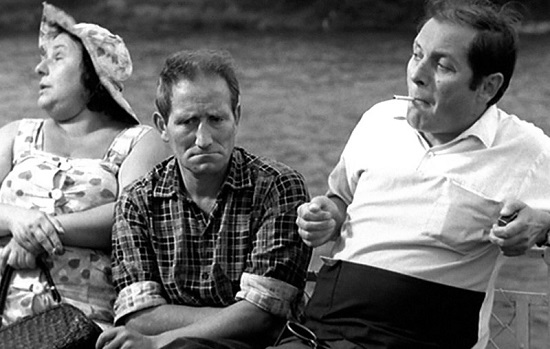
The closing night’s interdisciplinary project is an example of the intertwined relationship of various art forms, and of Kinoteka’s willingness to orchestrate experiences that are fundamentally creative. It also seems appropriate to reflect that Piwowski’s Cruise, as a political parody, reminds us that art and culture are inseparable from the political sphere, a fact made even more clear by looking at the rest of the fantastic assembled films on offer at this most diverse yet focussed of film festivals.
The Kinoteka Polish Film Festival is on now and runs until the 29th of May. More info can be found on the website here

